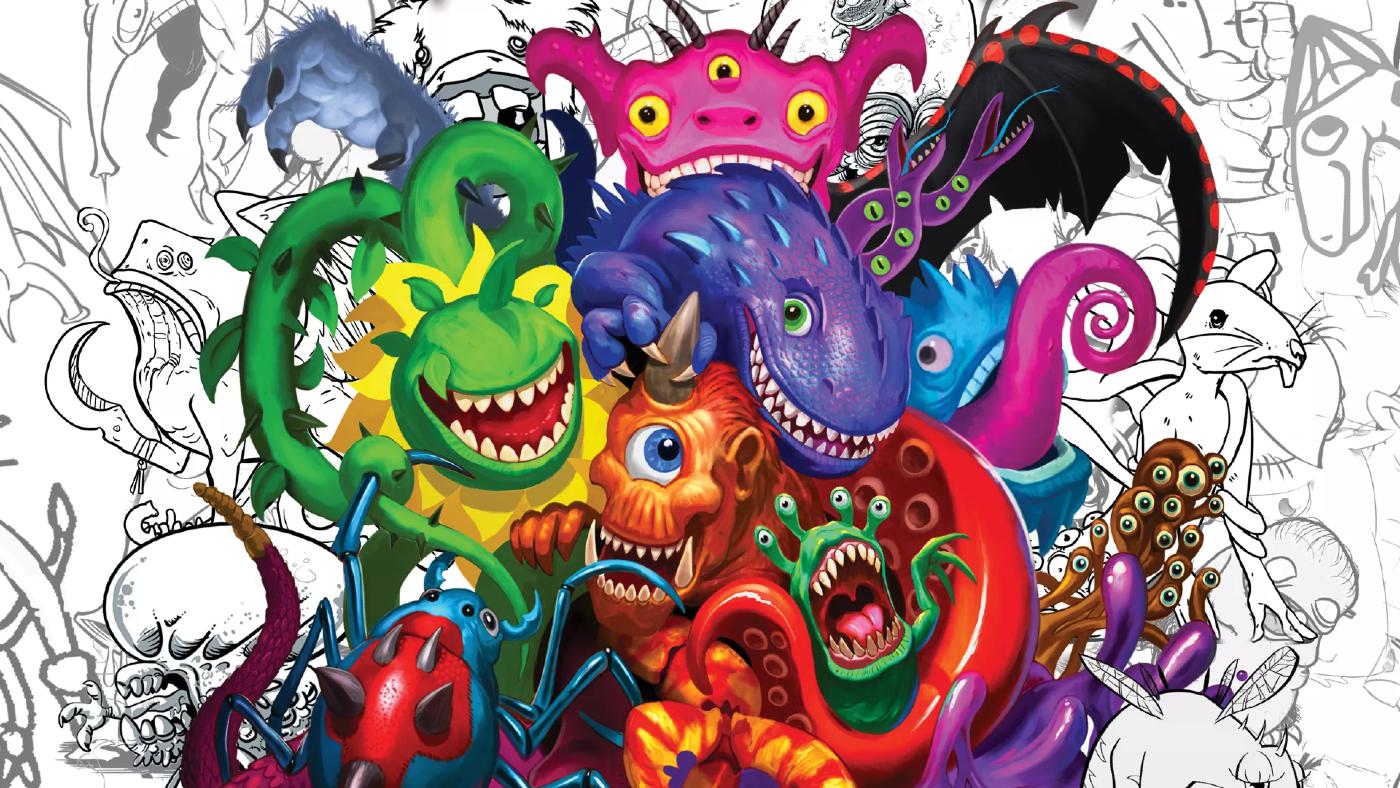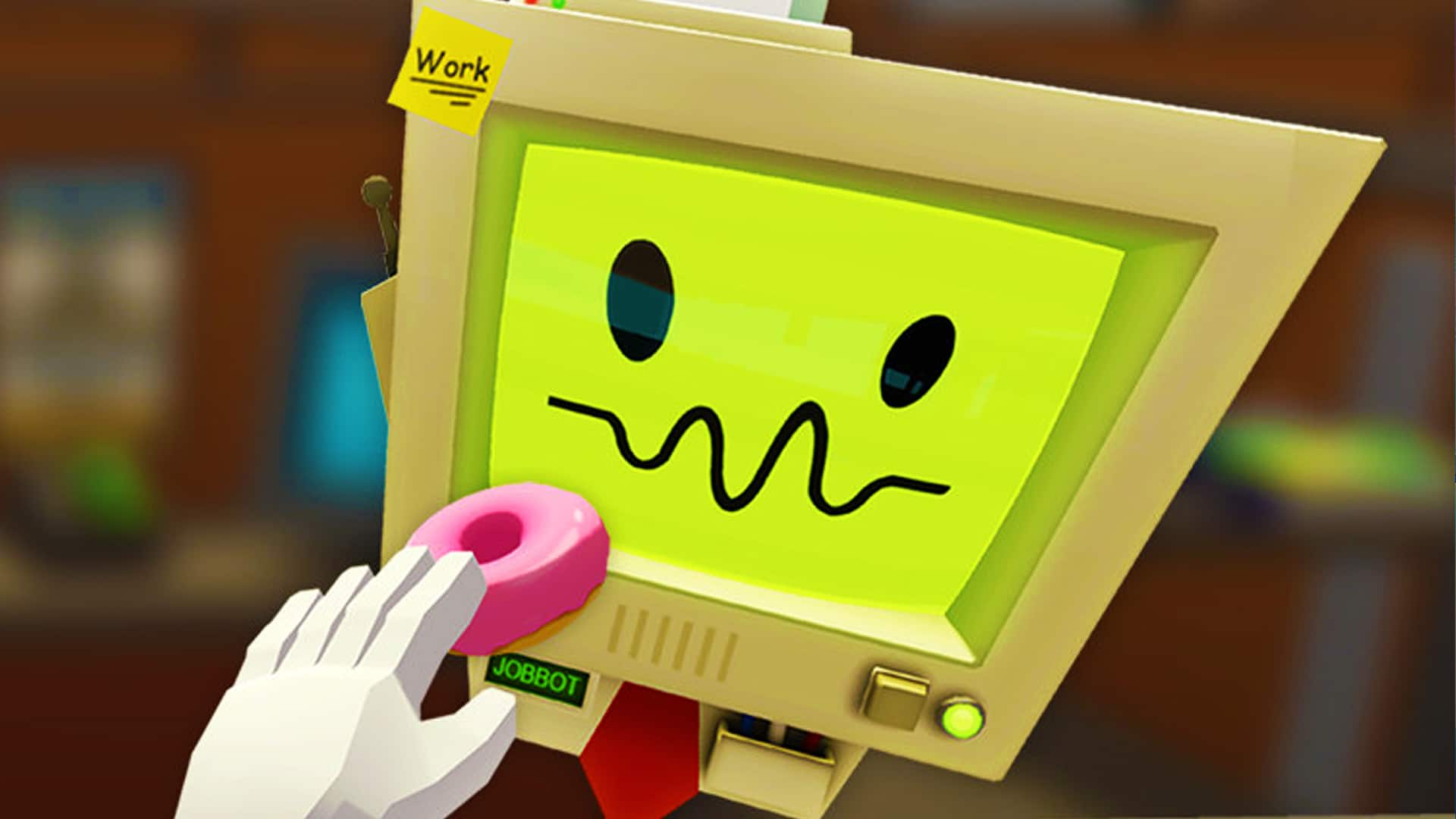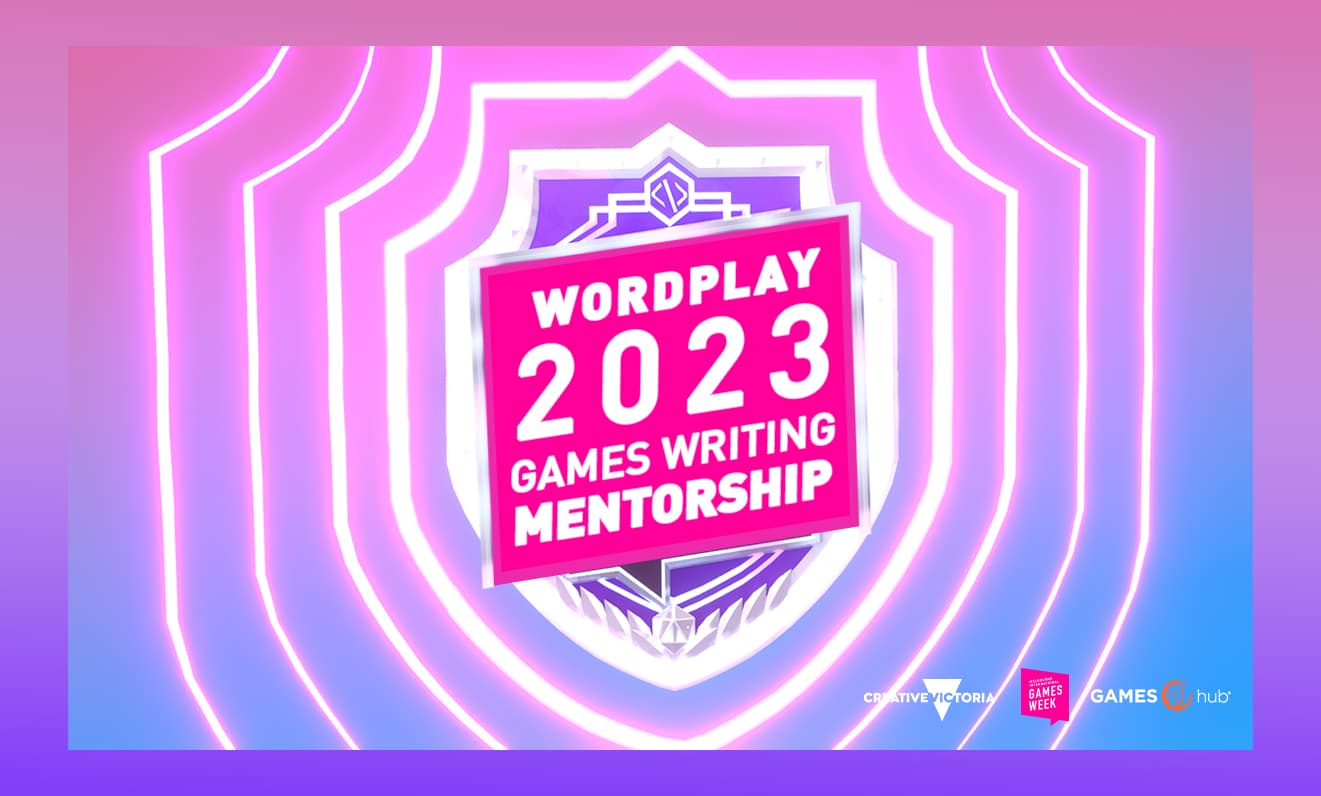From independent solo developers right through to an actual Call of Duty studio, Australia is home to the full spectrum of video game development. But the process of creating even a small-scale video game can involve a significantly broad and diverse range of skills, and while most developers would agree that developing an understanding of as many aspects of production as possible will be a benefit to you and your team, they will also tell you that becoming highly skilled at a particular area is going to be important for getting a games industry job at a bigger studio.
Read: How to apply for a job in games (and what not to do)
The aim of this feature is to provide a starting point for those looking to work towards a particular game development role, including some study options. The advice offered is by no means universal, and our lists of suggested courses is by no means exhaustive.
Most tertiary game design schools in Australia are structured as two or three-year courses with a core of game design and game-making fundamentals, plus options for specialising in particular areas upon which to build your qualification.
Many professionals working across the games industry in Australia have a broad base of skills across many disciplines, and most will advocate for the development of even a rudimentary understanding of all of those listed below.
Of course, there can be many roads towards a game development career, including ones that do not involve tertiary education.
To those interested in pursuing study of any kind, we always encourage you to contact any TAFE or university offering relevant courses, and ask honest questions directly. Many will be more than happy to put you in touch with someone from the specific department or a student organisation to answer any questions about the qualification or the institution itself. You can also find more features on building a career in video games on our Education page.
Table of Contents
TECHNICAL ARTIST
What is a Technical Artist?
A Technical Artist is the bridge between the programmers who code the logic of the game’s systems and the artists who give it visual life. An excellent technical artist is a highly skilled communicator of both disciplines, and is a key figure in keeping the production pipeline flowing smoothly.
Advice from a Technical Artist
Aspen Forster – Technical Artist at League of Geeks:
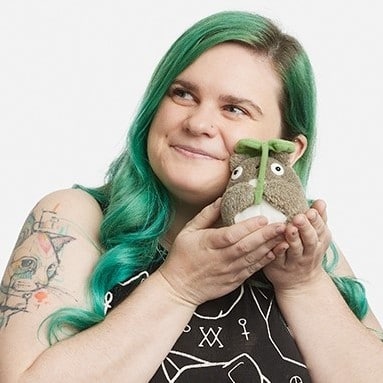
“Work as a Technical Artist is something hard to define, as the role can change per studio, per project and per person. I decided to study Game Design at RMIT with no knowledge of how games were made and what roles were available – I just knew I wanted to be involved. I found myself happiest when I could help others get their work done more effectively, and be a sort of glue between other disciplines.
It’s pretty hard to walk straight out of university into Technical Art – as you often need to have a lot of context over what every other discipline does and how to help them do that, so I started out as a 3D Artist for many years before drifting over to Technical Art. I would recommend it for those who like deep diving, while still having a broad view of projects!”
Suggested Courses
PRODUCER
What is a Producer?
Much as they do in other industries, a Producer in games oversees the production of the game. Their specific duties will vary depending on the studio, publisher, and scale of the project, but frequently entail laying out a development roadmap, and trying to ensure that the team meets its milestones along the way.
Advice from a Producer
Cherie Davidson – self-described ‘Game Midwife’ at Cherie Makes Games:
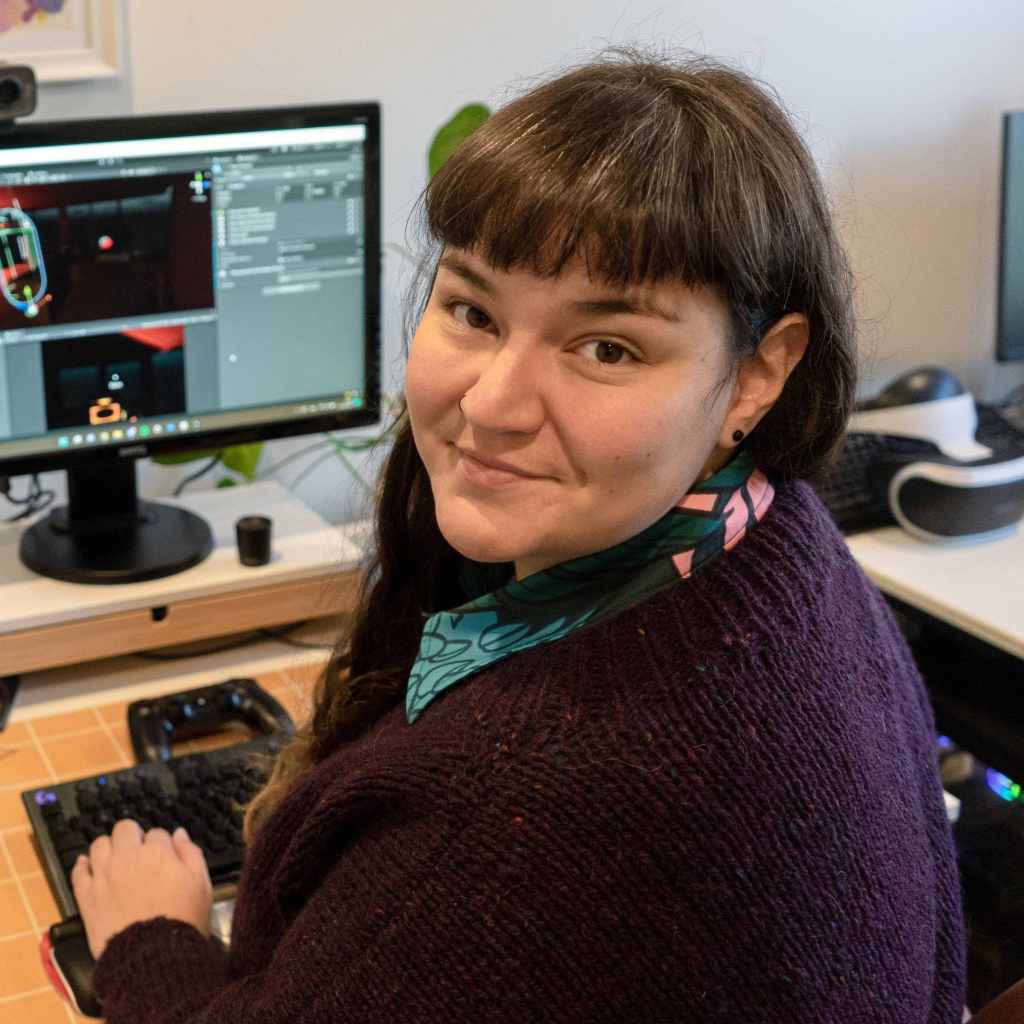
“The role of a producer is so hard to explain without the practical context. I studied digital art and programming and was that person on the team who ended up picking up the de facto organisation work – things like running meetings, managing task lists, event and presentation prep. It wasn’t until I applied for a VicScreen fellowship at Media Molecule a few years into my career that I was properly exposed to the term “producer” and was able to label my experience.
Production work is frustratingly ephemeral; the second you update a timeline, it’s out of date, and there’s rarely a ‘thing’ you can point at in your game that you can say you alone did. Rather, the entire game is your responsibility. It’s like being a navigator – you don’t choose the destination or raise the sails, but you make sure the whole ship arrives safely where it should.”
Suggested Courses
- Torrens University Australia (Sydney, Melbourne, Some courses also offered online)
- University of South Australia (Adelaide)
- South Metropolitan TAFE (Perth)
- RMIT (Melbourne)
- Swinburne University (Melbourne)
ANIMATOR
What is an Animator?
An Animator’s job in games is to breathe life and personality into the characters and world so that they’re all not just static objects. Animators in games are often responsible not just for the act of making a creature move, but also for rigging the model itself, so that it can operate.
Advice from an Animator
Derek Pritchard – Lead Animator at PlaySide Studios:

“I’ve always had a love for animation from growing up on Disney classics and cartoons but 3D animation and games in particular was always a dream career. I completed a Bachelor of Animation at SAE Qantm and I’m very fortunate to have been working in the industry since.
The quality bar for animation in games is getting higher every year, and thankfully the tools and game engines are also improving to match. With free software like Blender and the endless online tutorials, the pathways into a career in animation are only getting broader and more accessible.
If a career in animation is of interest to you, start with studying and more importantly practicing the basic principles of animation. Exercises like animating a bouncing ball or a character picking something heavy up will lay the foundation for a long career of slaying dragons and fighting giant robots.”
Suggested Courses
- SAE (Adelaide, Brisbane, Byron Bay, Melbourne, Perth, Sydney)
- RMIT (Melbourne)
- JMC Academy (Sydney, Melbourne, Brisbane)
- AIE (Sydney, Melbourne, Canberra, Adelaide. Some courses also offered online)
PROGRAMMER
What is a Programmer?
Programmers weave together the ones and zeroes that make a game work under the hood. When existing software packages aren’t able to efficiently fulfil a desired goal of the project, they may even be required to create whole new ones.
Advice from a Programmer
Harrison Gibbins – Programmer at Massive Monster:

“I’ve been in the industry as a game programmer for over 6 years, beforehand I studied an Advanced Diploma of Game Programming at the Academy of Interactive Entertainment. Although it helped me get to where I am today, I wouldn’t say it’s vital to getting yourself a career in games. There are many other resources online such as YouTube that can provide helpful information without having to fork out a massive help education loan.
My suggestion to anyone looking to get into the games industry as a programmer would be to focus on creating a portfolio of games. My experience (and I’m sure others can agree) is that studios hiring do not look for what qualifications you have, but rather are looking to see examples of your work (with code examples).
If you have zero programming knowledge, then that’s fine! Download Unity, open up a tutorial on YouTube and away you go. A lot of what programming consists of is problem-solving and math, which can be learnt simply from following along with as many tutorials as you can.”
Suggested Courses
- AIE (Sydney, Melbourne, Canberra, Adelaide. Some courses also offered online)
- RMIT (Melbourne)
- Swinburne University (Melbourne)
- JMC Academy (Sydney, Melbourne, Brisbane)
QUALITY ASSURANCE (QA)
What is Quality Assurance (QA)?
Arguably one of the most under-respected and misunderstood roles in games development, members of the Quality Assurance team spend their time identifying bugs, glitches, incompatibilities and inconsistencies and then reporting them in as much detail as possible back to the development team to attempt to fix. They have the largely thankless task of playing hundreds of hours of the game during its development cycle, always consciously trying to break it in as many ways as they can.
Advice from a QA Wizard
Jason Imms – Head of QA for Keyword Studios Australia:
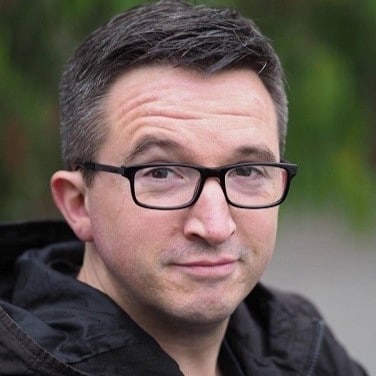
“Like most people in QA, I didn’t get my start in the discipline expecting to find a passion for it. I got my first QA job while I was still studying at university, mostly because it paid a lot more than my previous job at Domino’s.
Over the proceeding 20+ years, I realised QA is fascinating and largely misunderstood, especially in the games scene. It’s not taught as a discipline by tertiary educators beyond some cursory stuff, so I’ve made it my mission to try to bring enterprise-grade QA practices to any studio I work with, and to help grow a passion for it in as many people I work with as possible.
Our job is to be clear communicators of risk, eagle-eyed advocates for our players, the natural predators of unexpected deferred scope, and (ideally) trusted members of teams who see us as utterly vital to their success. Anyone who is interested in a career in QA should apply for jobs when they’re advertised, commit to dedicating at least a couple of years to really giving it a go, and ask to have a chance to get their ISTQB Foundation Certification as soon as possible.”
Suggested Courses
- RMIT (Melbourne)
- Swinburne University (Melbourne)
WRITER / NARRATIVE DESIGNER
What is a Writer and Narrative Designer?
Writing for video games is a remarkably distinct discipline from that of writing for other entertainment mediums, as it tends to feature so many more moving parts and variable conditions.
A games writer might pen the overall story, sure, but they’ll also be responsible for things like situationally distinct branching dialogue, background chatter from non-player characters, item descriptions, flavour text, and in-game world-building such as in the form of letters and notes. The assembled scripts for even smaller-scale games tend to utterly dwarf that of feature films.
Advice from a Writer / Narrative Designer
James O’Connor – Project Narrative Lead at Mighty Kingdom:

“The path I took to becoming a narrative designer was not particularly straightforward. I worked as a freelance journalist and critic for over a decade, piecing together a career out of a million different gigs. In 2009 I embarked on an ill-fated PhD on the loose topic of narrative in games; this eventually coalesced and narrowed into a Master’s thesis about player-driven narrative experiences, and how players reason through which events do and don’t “count” in a game world where they’re given a high degree of freedom (Grand Theft Auto IV). I finished this thesis then forgot about it for a few years as I threw myself into teaching a professional writing topic and working for magazines and websites that kept shutting down, one by one.
In 2019, a friend of mine became a narrative designer at Mighty Kingdom, and the more I heard about the job the more I realised it suited my skill set and experiences. I applied with no formal game development experience and have had to learn a lot on the job, but every job I’d had up to that point had prepared me well.”
Read: Making a career change from games journalist to narrative designer
Suggested Courses
- RMIT (Melbourne)
- Bachelor of Design (Games) (Writing for Video Games is a specific elective unit within the program)
- Deakin University (Melbourne)
- Scriptwriting (Bachelor of Creative Arts) (Writing for Games is a core unit)
GAME DESIGNER
What is a Game Designer?
The role of a Designer in video games is a relatively loose term, but by and large, they are responsible for sculpting the overall form of the game and its mechanical systems.
The specificity of the role varies depending on the scale of the project and the culture and makeup of the development studio. Most AAA games employ multiple designers focused on individual areas and features
Advice from a Game Designer
Sanatana Mishra – Designer and co-founder at Witch Beam:
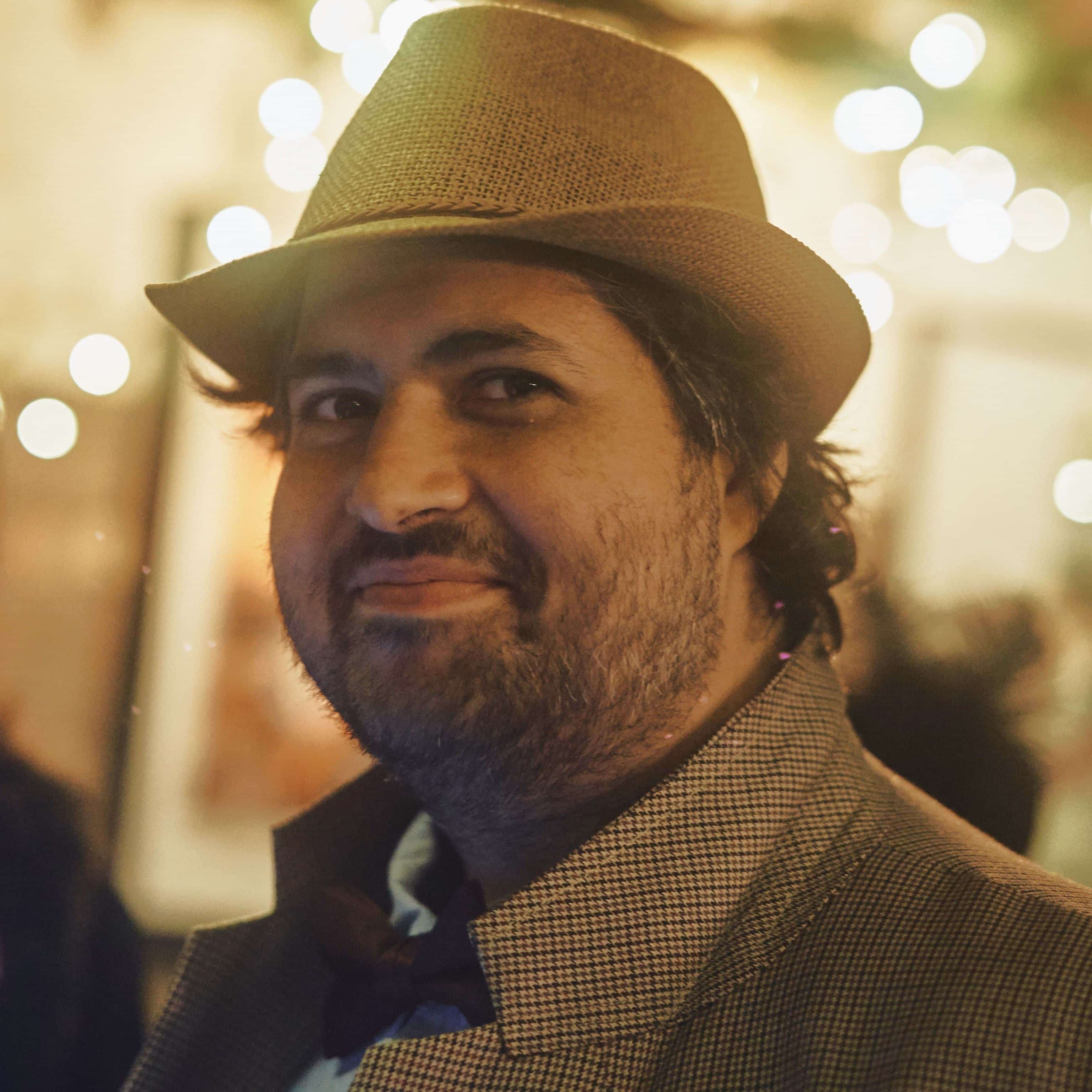
“I started in Quality Assurance, which gave me some very valuable experience in understanding all the ways a game can fall apart, but also how it can come together when 150 people are striving toward the same goal.
I think there’s a reason many designers start in this space and it’s because our primary assets are soft skills, we get to touch just about every area of a game so you really need to develop a broad understanding of how games function in order to make changes that ripple out and cause massive impact.
Of course, you will need some hard skills too, large teams will expect things like scripting and documentation as well as spreadsheets to be your domain, but I think these are less important than developing your professional empathy. A deep understanding of your players should drive every decision you make.”
Suggested Courses
- Torrens University Australia (Sydney, Melbourne. Some courses also offered online)
- University of South Australia (Adelaide)
- RMIT (Melbourne)
- JMC Academy (Sydney, Melbourne, Brisbane)
- AIE (Sydney, Melbourne, Canberra, Adelaide. Some courses also offered online.)
ARTIST
What is an Artist?
Video game Artists operate across a variety of disciplines and sub-categories from conception, texture design and application, to digital set decoration and beyond.
Advice from an Artist
Goldie Bartlett – Ghost Pattern:
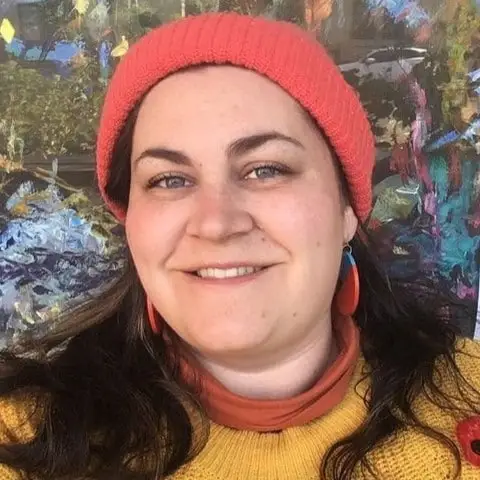
“My career pathway started well before university, by being active as a digital artist and learning what I could by myself, online. At 21, I decided to study game design (RMIT, BA Games Design) as a way to practice digital art, and found the culture super interesting – I enjoyed learning as much as I could.
The best way to get a job in games is to make games. Make games with your friends, with musicians, with other artists, with friends who code. Find ways to get your weird, wobbly early work out there.
When you’re young, you go to lots of house parties and festivals – try reaching out to the organisers to get your games or your friends’ games playable at the parties – anything you can do to help build a community around your work is going to be a fun time, and lead to connections and, hopefully, future collaborations.”
Suggested Courses
- RMIT (Melbourne)
- AIE (Sydney, Melbourne, Canberra, Adelaide. Some courses also offered online)
SOUND DESIGNER
What is a Sound Designer?
Sound Designers craft the audio landscape that immerses the player in the experience, and work to implement it into the game. From the roar of engines in a car racing sim to dynamically reactive musical scores in action games, Sound Design for video games is a multifaceted and often quite technical vocation.
Advice from a Sound Designer
Maize Wallin – Composer, Sound Designer, and Audio Programmer:

“My advice to anyone starting in games is to join the union, Game Workers Australia. When I started 12+ years ago, game audio resources were so scarce, and industry awareness was next to nil. Joining the union means that you join everyone in the industry who is invested in each other’s success.
It’s tempting to look at other audio people and view them as competition, but it is not possible to be across every tool as they come out, just like it is not possible to be across the IP rights on every platform, or latest market rates and expectations. In Australia we are all encouraged to be generalists in audio, because we have generally smaller teams than in bigger regional markets. That means we must be across implementation, sound, and music, and business and industrial relations and rights.
The best way to do this is collectively. Surround yourself with people invested in yours and each other’s success.“
Suggested Courses
- SAE (Adelaide, Brisbane, Byron Bay, Melbourne, Perth, Sydney)
- University of Adelaide (Adelaide)
- Griffith University (Brisbane)
MARKETING / PR / COMMUNITY MANAGEMENT
What is Marketing / PR / Community Management?
Your studio is working on a game that you hope to release commercially. Now, you need to let the world know about it! Having a knowledgeable person who can manage your marketing, messaging, media, and community relations is vital. Many studios and publishers of all scales will employ people in-house for such roles, but there are also many boutique PR firms across the globe who specialise in video games.
Advice from a Games Marketing Expert
Meredith Hall – Marketing Director at Summerfall Studios:

“I fell into games, which sometimes feels blasphemous to say, knowing how hard it can be. I came in as a marketer but now my background sits across production, business development, marketing and accessibility – all similar spaces that often have one thing in common – problem-solving for someone’s needs!
If I could recommend skills for this path in games, in this space, I’d say two things:
One – You have to WANT to do it. There is a lot of demand in this industry for these skills, but if it’s just a path for you to be the ideas person, you shouldn’t do it.
Two – Be open to all the fields that will be useful to you. I studied psychology, communications and theatre, and they’ve all been endlessly applicable. I worked retail and learned how to talk consumers down (hello community management!) as well as how to manage my time and empathy.”
Suggested Courses
- Swinburne University (Melbourne)
- Box Hill Institute (Melbourne)
- University of Wollongong (Wollongong)

